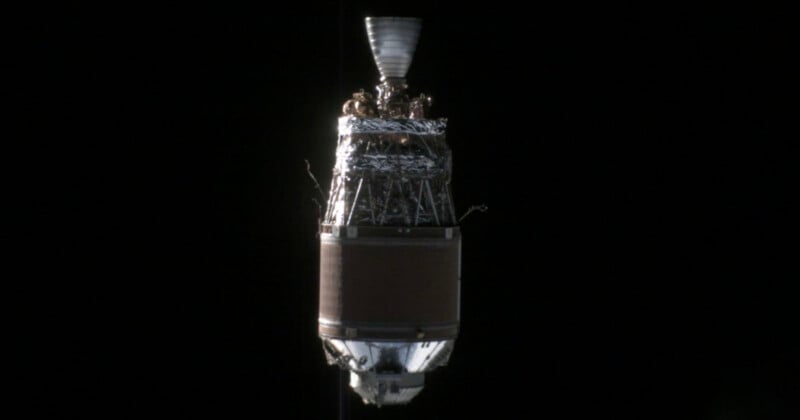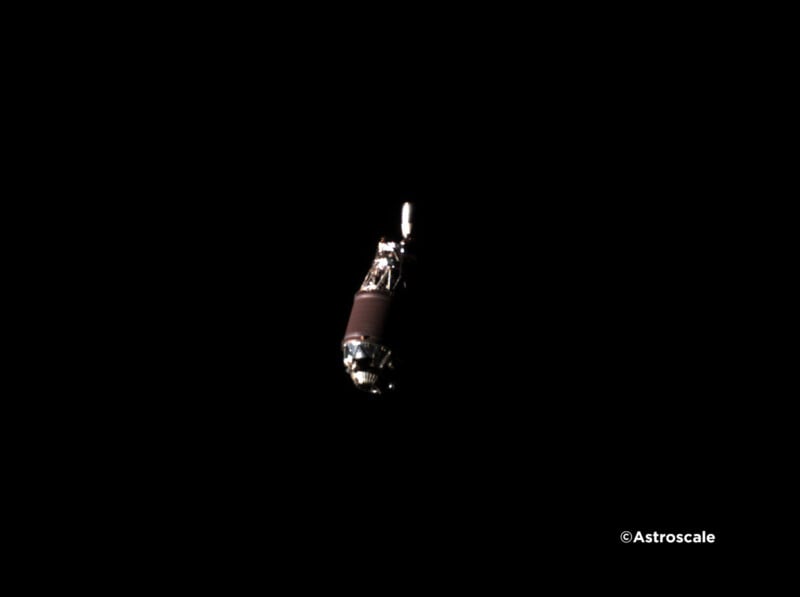Satellite Captures Up Close Photo of Giant Piece of Space Junk

A satellite designed to eliminate the increasing amount of space junk orbiting the Earth has homed in on a 36-foot (11-meter) discarded rocket upper stage to take a remarkable photo.
The Active Debris Removal satellite owned by Astroscale-Japan (ADRAS-J) got within a distance of 164 feet (50 meters) of the discarded rocket on June 14 that has been in Earth’s orbit for almost 20 years.
Astroscale has embarked on an ambitious mission to remove some of the hundreds of thousands of pieces of space junk circulating Earth and approaching the discarded rocket is part of analyzing an “unprepared object” in orbit as well as learning how to safely get near it.
Astroscale says its close encounter is a world first and studying space junk in near proximity will allow it to understand what kind of condition the debris is in so it can hatch a plan to remove it from Earth’s orbit.

This particular piece of space junk is in low orbit and Astroscale’s plan is to grab it with a pair of robotic arms and carry it out of orbit so it can burn up in Earth’s atmosphere.
“In the next phase, ADRAS-J will attempt to capture additional images of the upper stage through various controlled close approach operations,” the space company writes in a press release.
“The images and data collected are expected to be crucial in better understanding the debris and providing critical information for future removal efforts.”
Why is Space Junk Being Removed?
NASA estimates that there are close to 6,000 tons of space junk orbiting Earth at 18,000 miles per hour. They vary in size but including tiny fragments, there could be over a million pieces up there.
Space junk poses a serious threat to functioning satellites and the International Space Station (ISS) which regularly maneuvers to avoid collisions with debris. But even a tiny fragment piercing the station’s wall could potentially cause a catastrophe.
Then there is the Kessler effect theory which says if there is enough junk in low Earth orbit then a collision could cause another collision and begin to cascade and ultimately render some orbits unusable and compromise space missions.
Image credits: Astroscale